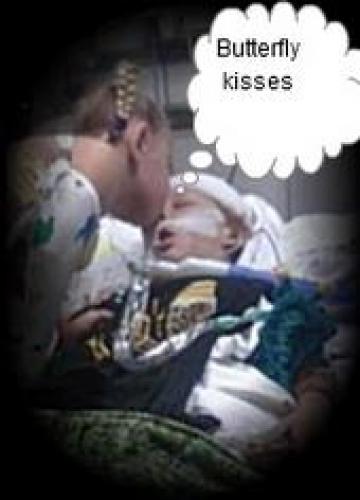Even during the maddening grief he felt after the fatal shooting a week ago of his 7-year-old son, his own namesake whom he affectionately called “Junior,” he would not compromise his principle.
His thoughts turned to the two young sons of the couple charged with shooting his boy, and he decided to make sure they were being cared for. He thought, too, of other families going through the same pain as he and his wife, and they decided to donate their son’s organs.
Gale and Sheila Muhs are in the Liberty County Jail, charged in the shooting that killed Donald Coffey Jr. and wounded his father, his 5-year-old sister, Destiny, and family friend Patrick Cammack, 30.
The Muhses have two boys, ages 8 and 16, attending the same Dayton school district as Coffey’s two surviving children.
While eager for justice for his son, Coffey went to the school district offices to check on the welfare of the Muhses’ boys and learned they were safely at a grandmother’s home outside the district.
“I didn’t want anybody to bother them or pick on them. They’re not at all responsible for this,” Coffey said in his first interview since the shooting.
Dayton Superintendent Greg Hayman was surprised to learn of Coffey’s concern for the Muhses’ boys.
“I think it was an amazing expression of love in the face of insurmountable loss,” Hayman said. “It gives people hope.”
In those awful moments after the shooting, Coffey faced many decisions, but he said probably the most difficult was donating his son’s organs so other children might live.
He remembers “feeling weird” and unsure how his wife, Becky, would react. Their son’s organs were kept oxygenated after doctors declared him brain-dead Saturday at Children’s Memorial Hermann Hospital in Houston.
Coffey knew his wife was struggling as much as he was to accept that their blond, bespectacled boy would never again run through the mud or ride through the Liberty County countryside he loved.
While most of the events at the hospital are a blur, Coffey remembers eventually telling hospital staff that he supported donating his son’s organs. But he ached at the thought of asking his wife’s permission, saying he just couldn’t do it.
That’s when he learned that his wife had given her permission minutes earlier.
“Neither of us could imagine having another family go through this, if we could help it,” he said. “There’s no words that exist in the dictionary that can describe what we’ve been through. It’s indescribable.”
Helping three children
When the Coffeys left the hospital without their son, they were told his organs had been used to save the lives of three children.
“I don’t know if there were any others later. It’s irrelevant to me,” Coffey said. “I won’t ask.”
But one day, the Coffeys would like to meet those who received the organs.
“We hope to know their names and talk to them,” he said. “We can’t force it, but we would like it.”
Catherine Burch Graham, spokeswoman for LifeGift, the organ and tissue recovery agency that handled the Coffey case, said she will help the couple compose a letter to the recipients about meeting.
“We usually wait at least six months because not only the families of the donors, but sometimes recipients, have emotional challenges,” she said, such as feeling guilty for being alive when another died.
Usually, only children have the organs small enough for other children, she said, and many die before one becomes available. Nearly 10,000 children and adults are waiting on transplant lists in Texas, and one in three will die before they have a donor, records show.
Graham said Donald Jr.’s legacy will be his gift to other children with life-threatening health issues.
